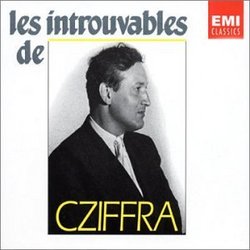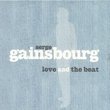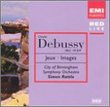| All Artists: Franz Liszt, Gyorgy Cziffra, Mily Balakirev, Robert Schumann, Felix [1] Mendelssohn, Johann Nepomuk Hummel, Ludwig van Beethoven, Carl Philipp Emanuel Bach, Johann Ludwig Krebs, Domenico Scarlatti, Francois Couperin, Jean-Philippe Rameau, Jean-Baptiste Lully, Frederic Chopin, Johannes Brahms, Cesar Franck, Edvard Grieg, Pyotr Il'yich Tchaikovsky, Andre Vandernoot, Pierre Dervaux Title: Les introuvables de Cziffra Members Wishing: 1 Total Copies: 0 Label: Angel Records Original Release Date: 1/1/2002 Re-Release Date: 8/12/2002 Album Type: Box set, Import Genres: Dance & Electronic, Special Interest, Classical Styles: Ballets & Dances, Polkas, Polonaises, Waltzes, Forms & Genres, Concertos, Fantasies, Rondos, Short Forms, Sonatas, Toccatas, Historical Periods, Modern, 20th, & 21st Century, Romantic (c.1820-1910) Number of Discs: 8 SwapaCD Credits: 8 UPC: 077776736624 |
Search - Franz Liszt, Gyorgy Cziffra, Mily Balakirev :: Les introuvables de Cziffra
 | Franz Liszt, Gyorgy Cziffra, Mily Balakirev Les introuvables de Cziffra Genres: Dance & Electronic, Special Interest, Classical
|
Larger Image |
CD DetailsSimilar CDs |
CD ReviewsCZIFFRA - A Keyboard Phenomenon arffizc268@hotmail.com Alan Albes | London | 05/26/2001 (5 out of 5 stars) "Issued in 1991 by EMI France to celebrate Cziffra's 70th birthday this 8 CD boxed set is a bargain. The first CD is all Liszt and contains some of the most spellbinding playing you are ever likely to hear. Fire and brimstone reign as Cziffra tears up the keyboard in the Dante Sonata's demonic moments; surely a whiff of sulphur as he spontaneously combusts during the Mephisto-Valse; the Rhapsodie espagnole and Grand Galop chromatique {see him sweat playing this on Philip's `Great Pianists of the 20th Century video.}. As a contrast, be seduced by his heart-melting rendering of the third Liebestraume; the caprice of the Valse-Impromptu; and have the waters of `Les Jeux d'eau a la Villa d'Este' ever cascaded so onomatopoeically and with such a transcendental variety of touch and nuance. More diablerie follows on disc 2 with transcriptions by Liszt and those {in} famous ones by Cziffra himself. I have never heard a more demonic Gounod/Liszt ` Valse de Faust'; Auber/Liszt `Tarantelle de bravura'; or Tchaikovsky/Liszt Polonaise from `Eugene Onegin'; as for Cziffra's playing of his own transcriptions and paraphrases, especially the Strauss `Tritsch-tratsch polka' and Rimsky-Korsakov `Flight of the Bumble-bee; well, they are in a class of their own. Both Katsaris and Volodos recorded the latter pieces but I'm afraid they cannot compare with Cziffra's sheer electricity and panache. You will now need an ice pack as disc 3 opens with Balakirev's Islamey which starts steadily enough compared to say Simon Barere's famous account {now on APR} but increases in excitement as Cziffra adds all kind of gypsy embellishments as he builds to a fiery conclusion. Excitement is also the key to the next piece; Schumann's Toccata, which Cziffra plays with effortless abandonment and joie de vivre as he also does Mendelssohn's Rondo Capriccioso. Cziffra loved to play Baroque music and the rest of this disc is taken up by mainly short but characterful pieces by Couperin, Lully, Rameau and Krebs. Many were recorded in the 1980s and sound better if played back at a reduced volume level as they were obviously too closely miked. Cziffra once said that he couldn't play Beethoven so preferred to leave it to others who could. He did record a number of sonatas and this selection includes very fine accounts of the `Pathetique'; No. 13 in E flat Op27/1 {companion to the `Moonlight'};and Op. 26 in A flat. He brings a full cantabile to the latter works opening movt. and to the Adagio of the `Pathetique'. Elsewhere he plays with refinement and elegance; everything is in the best possible taste and there is nothing to offend, but those who like their Beethoven a bit more rough and gruff could be a bit disappointed as they might also be with Cziffra's Brahm's Paganini Variations which are technically stunning but find Cziffra musically out of sorts. The Schumann disc finds him on top form. Like many great artists Cziffra loved to play Schumann and he was equally at home with Eusebius { the dreamer} as he was with Florestan { the impetuous side of his character} and this is self evident in his brilliantly characterful accounts of Carnaval, Fantasiestücke, and Carnaval de Vienne - the latter piece highly praised by Cortot after he heard Cziffra during a Paris radio broadcast in the late 1950s. Discs 7 and 8 are all concertante works and show Cziffra at the very height of his stupendous powers. Again Cziffra has his demon up in the most astounding Liszt Totentanz ever recorded; a Hungarian Fantasy with all the improvisational colours of a band of gypsy fiddlers and an ideally recreative performance of the second concerto to make all others sound four-square . To cap this there is a fabulous Grieg concerto in which Cziffra dares to improvise the end of the Lisztian style cadenza; a meltingly beautiful slow movt with an excitingly brilliant finale. Last but certainly not the least, a very poetic reading of Franck's Symphonic Variations and a Tchaikovsky first concerto which combines thrilling virtuosity with all those individual touches that only a genuinely recreative artist can bring to such a familiar masterpiece. This collection is a splendid tribute to one of histories greatest pianists - an artist who knew the authentic meaning of ` bravura'." A world-changing musician F. W. Brownlow | Holyoke, Massachusetts | 01/30/2006 (5 out of 5 stars) "I've not a lot to add to Alan Thorpe's review except to say that to be young when Cziffra burst upon the world in 1956 after he left Hungary & started playing in western Europe was sheer intoxication--and it wasn't all Liszt either! Like Richter, who appeared at the same time, he played Schumann in a way that opened up entire new fields of tonal & interpretive possibility. I must say, too, that from the start, I admired his Beethoven--I like lyrically played Beethoven! Why shouldn't Beethoven sing as well as growl? He did write some lovely songs, after all. Cziffra's versions of Op.13, Op.14/2 & Op.26 on this set are very satisfying--I just wish they had managed to include a recording of his version of the Waldstein, too." PORTRAIT OF AN ARTIST DAVID BRYSON | Glossop Derbyshire England | 10/15/2006 (5 out of 5 stars) "The eight discs making up this set are invaluable to anyone interested in this extraordinary musician and pianist. His career was cut tragically short, and while it lasted he was most in demand to display his astounding technique in Liszt. He did it because he could. Not being enormously attracted to Liszt I was slow in coming to know Cziffra, but when I did what struck me forcibly was that the picture I had been given of him was seriously misleading. Any suggestion that he was a wilful virtuoso who turned the standard classics into something of his own is 180 degrees wide of the mark, and this selection enables us to hear what his playing was really like in music ranging from Lully and Couperin to the late 19th century, taking in on the way Rameau, Scarlatti, C P E Bach, Beethoven, Hummel, Chopin, Mendelssohn and Schumann. Liszt is here in the shape of the two concertos, the Totentanz and the Hungarian Fantasy plus some solos, my collection of least favourite romantic concertos is enhanced with his renderings of the Grieg and Tchaikovsky, but relief from these is provided with Franck's symphonic variations. Among the non-Liszt solo pieces we are given a number usually thought to call for exceptional virtuosity, namely Schumann's toccata, Mendelssohn's rondo capriccioso and Brahms's Paganini variations. Balakirev's Islamey is here too, but in a version of Cziffra's own, and so are some of his own virtuoso arrangements including one of the Flight of the Bumblebee as well as four similar efforts from Liszt.
Cziffra himself didn't aid popular comprehension by saying that he couldn't play Beethoven. I already owned his Waldstein, but here we have four more sonatas plus some smaller pieces, all early works. If I have a fault to find with his Waldstein it's that it is rather understated. What I don't fault at all is his sense of Beethoven's idiom, and the only flash of Cziffra's phenomenal technique comes where there can be no objection in the up-and-down octaves near the end. These are normally played glissando, because to finger them in strict time is impossible, allegedly. Even Horowitz can't do that - but Cziffra can. This really sums up his way of doing things - the technique is exercised strictly when needed, and then not in a showy way unless the sense of the music demands that. Try the Mendelssohn rondo here - light-fingered in the main rondo theme, relaxed in the episodes - then hear Serkin on Aura in his 1957 recital in Lugano, high-tension and full-speed-ahead. Serkin brought the audience to its feet, Cziffra is simply enjoying the piece, and very Mendelssohnian he sounds. Or again the Schumann toccata. Richter won raptures from the critics for his handling of the rat-tat fortissimo chords near the end while making no concessions to the tempo. He does that no better than Cziffra, if as well. The difference is that Richter `makes more' of the supposedly virtuoso sequences earlier. Now how about Cziffra's Beethoven here? It is natural, idiomatic and kept within a certain volume-level. There is no showing off let alone messing around. If Cziffra recalls anyone it is Kempff, and these performances would be safe models for teachers. In Schumann it's the same story. Not everyone could play Traumeswirren like this, and here and there the finger-work had me rubbing my eyes, but I keep sensing that Cziffra is not even aware that he's doing anything exceptional. The idiom is dead right, the rubato is natural, the lyricism is spontaneous if less `warm' than some, the sense of the overall structure is effortless - and I could say all that about Chopin's F minor fantasy too. I can't avoid Liszt, but some comparisons are interesting. This high-powered Totentanz has been rightly praised, but both in this work and in the first concerto I feel that Michelangeli beats Cziffra at what is supposedly Cziffra's own game. I hear Michelangeli as Cziffra's solitary equal as a technician, but in second-rate music like this spontaneity and dexterity are trumped by an above-it-all Olympian aloofness, and Cziffra undoubtedly does not take the ultra-care that Michelangeli takes over perfect evenness of touch, sublime poise in the rhythm and super-perfection in the trills. (In the matter of trills, you can hear what Cziffra can do when he puts his mind to it in the fiendish 4th variation in book 1 of Brahms's Paganinis). In the 2nd concerto Cziffra is the best I have yet heard. In sheer technical address neither he nor anyone surpasses Richter, but where I like Cziffra better is in an aspect of his playing that gets too little attention, namely his natural and unaffected lyricism. In the Hungarian Fantasy, the Liszt solos and the various arrangements I imagine Cziffra is unsurpassed and unsurpassable, not that I propose to research that matter much. The Grieg and Tchaikovsky concertos are here too. Cziffra adopts moderate tempi in the outer movements of the Grieg as the composer directs. The first movement of the Tchaikovsky is done as I like it, insofar as I like it at all. The introduction is taken fast, rather as Horowitz and Toscanini take it although I miss Toscanini's direction. The last movement however is taken at a very moderate pace, with the excitement saved for the end. Later performances are of some French music. In these pieces, as in the Scarlatti sonata, I wouldn't say that Cziffra stands out particularly - with one telling exception, Couperin's Barricades Mysterieuses, atmospheric and bewitching. Was this what they told you to expect from Cziffra? He was a natural, a child of the gods. The near-unbelievable technique was an important part of his gift, but what I prize most is his lyric manner - simple, innocent and clear-eyed. His actual touch is not one that you could identify within seconds, as you could identify that of Horowitz, Serkin, Richter or Michelangeli, but it is utterly free from affectation. The better you know him, the more you will love him." |

 Track Listings (10) - Disc #1
Track Listings (10) - Disc #1
